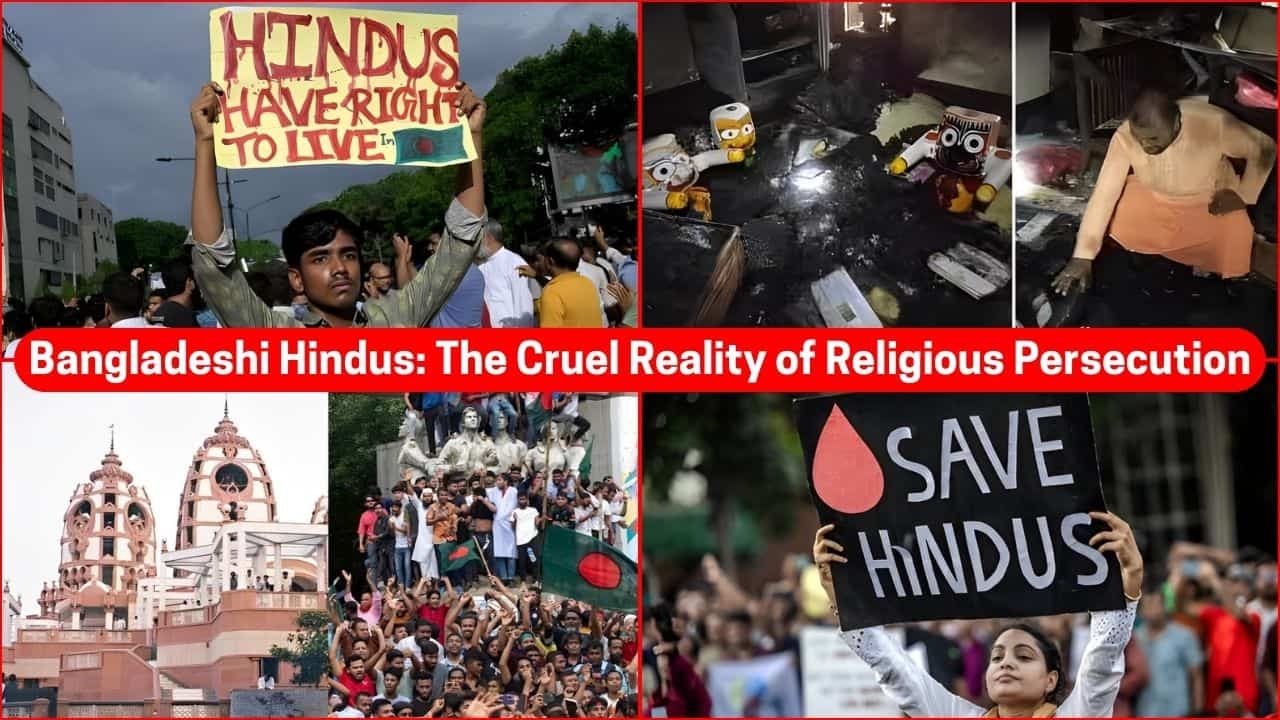Bangladeshi Hindus: The Cruel Reality of Religious Persecution
10 Aug 2024 16:42:06

Since the resignation of Prime Minister Sheikh Hasina, following her flight to India for asylum, there has been a spate of attacks on Bangladeshi Hindus. Such horrific incidents of burning, mob lynching, and destruction only epitomise the communal hostility that has come to haunt the nation and its people.
A Rising Tide of Hatred
It is a new wave of violence, sparked by anti-government protests, that is now targeting Hindu temples, homes, and shops. Some of the high-profile targets set ablaze by agitators in Dhaka included the Indira Gandhi Cultural Centre and the Bangabandhu Memorial Museum.
This type of violence or attack represents more than explosions of anger against the political establishment, but in actuality they are more tied to a wider agenda of religious intolerance.
The Human Cost
The carnage has already taken hundreds of lives since the time Sheikh Hasina left, with reports from different districts coming out about lynchings and brutal attacks. At least 52 of the country's 64 districts have seen intense communal violence during the widespread upheaval.
It has to be noted that two Muslim majorities attacked the house of a Hindu family such as Gabtali Upazila, Bogra also specifies that this attack is target based.
A Cry for Help
The Hindu community, which makes up 8% of the population across Bangladesh, has become more and more vulnerable. Across social media, Hindus are posting pictures of their homes being deserted, temples getting thrashed, and desperate calls for help.
Councillors like Haradhan Roy are lynched, and ISKCON temples in Meherpur are uprooted and burned—these were some of the glaring examples of extreme violence that is perpetrated by local Muslims.
Implications for Politics and Society
The violence has major geopolitical ramifications, especially for India, with which it shares a long and porous border. Thousands of Hindus have already arrived in India from Bangladesh. Although, as an example, many are concerned that a refugee crisis is looming on the horizon.
Indian political leaders, including Indian Prime Minister Narendra Modi, have appealed for the protection of Hindus in Bangladesh and demanded that immediate action be taken on an international level.
Historical Context and Future Concerns
This is not an isolated event or a new phenomenon, but more of the relentless continuation of historical lynching. Political turmoil has been accompanied by violence at different periods since the early 1970s, when Bangladeshi Hindus first became a target.
The recent stepping down of Sheikh Hasina has raised concerns that extremist militant factions like the Bangladesh Nationalist Party (BNP) and Jamaat-e-Islami may return to power.
Calls for International Intervention
It has drawn international concern. The United Nations has denounced the violence, urging Bangladesh to "protect and respect" minority rights while declaring an end to racist assaults.
The interim administration led by Nobel laureate Muhammad Yunus has promised that one way or another law and order will be established properly, but none of these steps so far have had any result.
Conclusion
The recent violence against Hindus in Bangladesh is ample proof of the horrors that religious chauvinism brings with it and how fragile the Hindu community is in such an Islamic country. While Bangladesh tides over this turbulent phase, utmost care should be taken to ensure that there is no further worsening of law and order situations near minorities in Bangladesh.
Article by
Shomen Chandra
Sub Editor, The Narrative